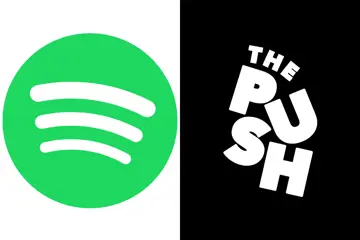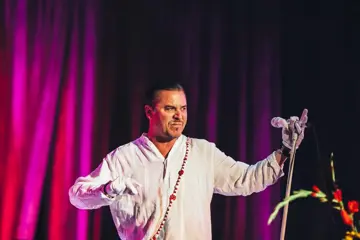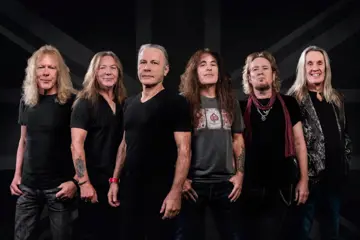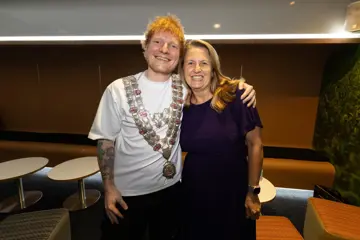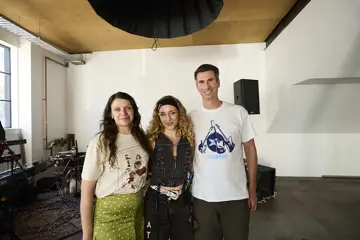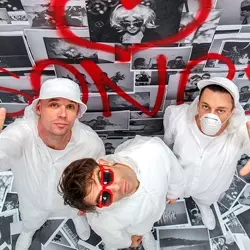 Thundamentals
ThundamentalsIn August 2014, three months after the release of So We Can Remember, hip hop luminaries Thundamentals were flooded with messages from a group of teenagers that saw MCs Tuka, Jeswon and DJs Morgs and Poncho return to their home turf in the Blue Mountains for a stranger's memorial service. It was there, among the grieving friends and family of a young man they had never met, that they fully realised the transcendent nature of human connection; an idea that helped form the conceptual basis of their fourth album, Everyone We Know.
"There was a guy who they call BB... He was celebrating his mother's birthday and he accidentally fell off a balcony in the Gold Coast and passed away," explains Brendan Tuckerman, aka Tuka. "The day that he died, a lot of his friends reached out. Us and Horrorshow, we were his favourite bands." In the months that followed, friends of 19-year-old Jarrod Samson-Hills would show up to Thundas' shows both here and overseas wearing shirts in tribute to BB and "holding lighters in the air". "I think one of them popped up in Germany," Tuckerman smiles.
Along with Horrorshow, the boys were invited to Glenbrook skate park for BB's memorial service. "His mother did this speech and then we all released blue balloons into the air. No one said a word. They just went into the distance until you couldn't see them anymore. It was really heavy, you know? It was a beautiful thing," he impassions. "It was so crazy that we'd never met him, but we'd had such an effect on him that after his death we just got this tsunami of him through all his friends. Jesse, the aether hit him. He got a chorus out of it and we went from there." Thus, Blue Balloons (BB's Song) came to fruition.
"I find it ludicrous that we care that much about it. We only changed it to the 26 Jan in 1994, it's not like it's been going for hundreds of years."
We're sitting on some seriously wacky, plastic, spaghetti-looking chairs in Universal Music's HQ the day after the release of the vehemently anti-26 Jan protest track Change The Date, for which Thundamentals joined forces with 11 Aussie hip hop artists as part of NITV's #AlwaysWillBe campaign ahead of Australia Day. Tuckerman, though unequivocally stating: "We're really not trying to be a political band. We're really just trying to say how we feel about things," is ardent about the importance the project. "It's one of those things that's really dividing people's opinion. I find it ludicrous that we care that much about it. We only changed it to the 26 Jan in 1994, it's not like it's been going for hundreds of years. All these..." — he pauses, finding a PC phrase — "particular people get offended by us changing it for some reason... To me it's black and white, sorry about the pun, but it's pretty straight forward."
Don't miss a beat with our FREE daily newsletter
Thundamentals' fourth LP Everyone We Know explores the concept of connectivity, woven through its examination of both personal relationships and the greater human nexus. "You have these connections by association, or by the energy and intention you put out there — you reach 'everyone you know'," Tuckerman enlightens. "So that thing is really important; you are more interconnected in society than you realise.
"I'm not slinging massive amounts of shade on the internet," he laughs, gesturing to the phone on the table, "but it's like, we're really the last generation of humans who are gonna know what it's like before the internet came and after the internet came. It's a really important time to be alive. The connectivity of hugging someone, for instance, releases endorphins, dopamine, serotonin. I read this thing today that women in particular respond really well to a hug a day. That gets lost with isolation and with people living on the internet all the time, and all the vanity that comes along with that, you know?"
"We write about what we see and how we feel and that's not always gonna be political."
While Everyone We Know's themes range from love to confronting socio-political injustices, Tuckerman circles back to the group's desire to steer clear of an activist label, preferring instead to "approach things on a philosophical level or psychological level rather than a political level." Tracks like Ignorance Is Bliss challenge preconceptions about white privilege, yet, as someone who is "white and privileged to a certain extent", Tuckerman's verse questions himself rather than "point the finger" at the listener: "Am I the boy in the bubble, am I oblivious, am I indifferent?"
"Hip hop comes from oppression. It comes from people expressing themselves out of oppression," he clarifies. "From my perspective, I'm making a career as a middle class white dude off this art form that comes from something that I will never properly understand. So when there is an opportunity to support and contribute to people, aka Indigenous population who have voiced concerns about particular issues — especially my peers like Birdz and Briggs and Nooky — the least I can do is support them." If you were at Parramatta Park on Aus Day, you may have seen Tuckerman standing in solidarity with L-FRESH The LION during his 'performance of listening' protest. "Non-racism is when you might see something but don't say anything... Anti-racism is actually voicing it. My personal opinion on it is that I'm sick of it, and I will be anti-racist in action." After a moment's contemplation, he adds, "But again, I want to make it clear that we're not trying to be a political band... We write about what we see and how we feel and that's not always gonna be political."
For Thundas it's all about spreading the love, upholding the rationale, "If you're authentic about a message, all you're doing is channelling the things that you believe. That in turn becomes relatable." Their quest for authenticity extends to the actors — or lack thereof — used in the Think About It clip, which features real-life lovers Jess and Corey. "We haven't spoken on it yet, but I'm kinda writing a piece on how beautiful it was to actually get someone that's actually in love for the clip," he grins. "Actors can be great, but it's nice to know when you watch it the intention of it is actually real, authentic. It's kinda like soft-core porn; they're into it, they're comfortable with it."
The group worked with April77 (aka Benjamin Funnell) to create a conceptual art piece for each song on the record; a body of work that will form a touring art exhibition and book "to highlight the marriage of visuals to music". "We just kinda wanted to make it [about] the interconnectedness. At the time we were really into psychedelic art on albums... We wanted it to live in this kind of creative space that stimulates your imagination. And also, if we put real faces on there it kinda limits people's interpretation of the art and the songs," Tuckerman muses. "[It's] a response to you only seeing an image this big on iTunes or Spotify... It's like 'Hey guys, don't lose this part, this is a cool part of music, the visual aspect.' It actually helps you figure out what we were thinking." The accompanying piece to Blue Balloons (BB's Song) "... is obviously blue balloons — that's one without a character because we didn't want to draw Jarrod. Blue Balloons was the personified spirit of him, we kinda see him as inside the blue balloons."










